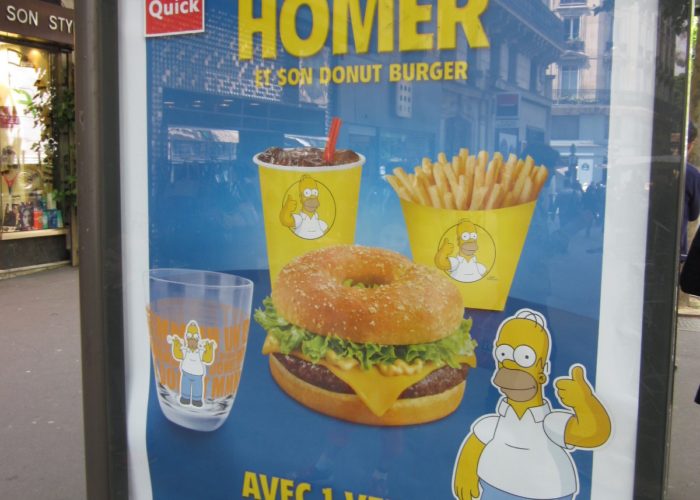Sometimes linguistic differences represent cultural differences, and sometimes they don’t. I previously wrote a post about this topic concerning the lack of the word “excited” in French. Does the absence of an exact translation for “excited” mean that the French lack excitement? No. However, there are definitely cultural differences in how excitement is expressed.
In this post, I want to take a look at some linguistic differences between French and English that are culturally meaningful — specifically in terms of food and meals. Food carries a lot of cultural significance, so it is no wonder that there are many food items and customs that have no exact equivalent in another language. Just think of how many different meanings or memories may be associated with types of noodles/pasta, desserts, or alcoholic beverages in your own experience.
These examples will be very familiar to people who know French, so these are not earth-shattering discoveries — far from it . But I think it’s interesting to group them together as part of an ongoing look at how cultural differences can be reflected in language, especially since dealing with them is a big part of the translation process.
Bon Appétit
At the beginning of a meal in France, people will say Bon appétit. We have no equivalent expression in American English. Often, we say nothing at all. Some Americans will begin the meal by saying grace, but this is quite different (since it’s a religious act instead of an invitation to enjoy the meal). When you become used to hearing Bon appétit, it starts to feel like a real lack in American culture when we fail to pause and acknowledge that we’re eating together. Sometimes a waiter in a nice restaurant will say, “Enjoy your meal,” but this is different, since it’s partly a customer service performance.
Filling Yourself Up?
After a good meal, Americans often declare: “I’m full.” As many students of French have learned the hard way, in French you don’t say “Je suis plein(e).” In fact, when a woman says “Je suis pleine,” it is an outdated expression for “I’m pregnant.” Instead, the correct phrasing is “J’ai bien mangé” (“I ate well”).


In this case, the linguistic difference reflects a significant cultural difference. It’s not just a case of how you say it, but what you should say. When you think of it, isn’t it kind of gross that Americans say “I’m full”? A French person would be more likely to comment on the quality of the meal, not the quantity (you can be “full” of anything, whether you’ve stuffed yourself at the food court or enjoyed a meal at a four-star restaurant). In fact, it’s pretty unusual to hear a French person conclude a meal by saying, “J’ai bien mangé.” So in this case, because of cultural differences, a different range of expressions comes into play: “Je me régale,” “Quel dîner délicieux!” etc.
Le Fast-Food

A quite obvious example of a linguistic difference related to food is the American term “fast food,” which has become a French word. The phenomenon, along with the word, were both imported into France from the good ol’ US of A.
This happened in 1972 with the opening of the first McDonald’s in Créteil, outside Paris, by Raymond Dayan. However, McDonald’s regretted the generous terms it gave to Dayan and then sued him, forcing him to change the name of his chain. The Institut National de l’Audiovisuel has an informative and entertaining video with this story.

